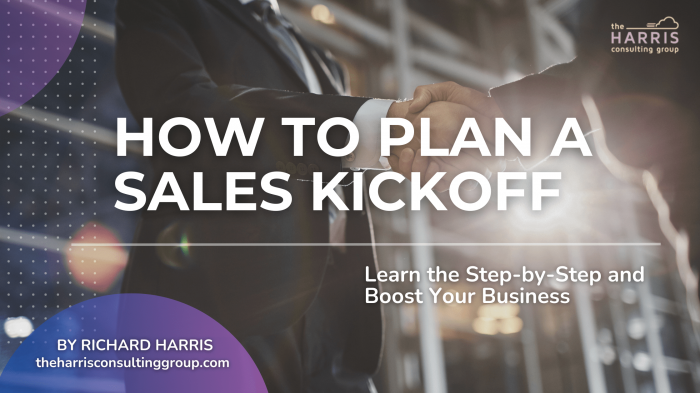As we approach the season for companies to commence planning their sales kickoff, it is crucial to recognize the significance of this period as it directly influences the success of the upcoming business year. Some companies fail to understand what sales kickoff are and their impact on achieving organizational goals.
To bridge this knowledge gap, here you can learn more about what a sales kickoff truly entails and explore the key steps you should take to plan a highly successful kickoff event. We are sharing a few ideas to help you plan and execute a successful sales kickoff.
What is Sales Kickoff?
A Sales Kickoff (SKO) is a pivotal event that often takes place at the start of a fiscal year. It is designed to equip sales team members with essential information and training on new products or services. The main objective of this meeting is to acknowledge their hard work, share best practices that can increase the skill sets of the sales team, motivate them, and make sure everyone is aligned and prepped to be best equipped to hit sales targets.
Now that you have a clearer understanding of the purpose and significance of a sales kickoff, let’s explore the main steps to make the most of this meeting.
1. Review Previous Years Sales Performance and Determine the Gaps for your Sales Kickoff
As I already mentioned, this Sales Kickoff (SKO) presents a valuable learning opportunity to improve your sales performance. To maximize the benefits, you should start by looking over your previous year’s work and analyze every aspect of your sales strategy.
Plan your Sales Kickoff keeping in mind your previous sales strategy and its successes and failures. Share on XThis critical step serves as the foundation for identifying both successes and failures, enabling the team to get valuable lessons from past experiences and incorporate them into the forthcoming sales strategy.
2. Don’t Teach A Methodology, Teach the Buyers’ Experience at your Sales Kickoff
The term sales training is commonly used, but it doesn’t accurately reflect what it should be. During a Sales Kickoff it’s crucial to educate your sales team on how people make purchasing decisions. Every purchase, regardless of its scale, is driven by emotions. Whether it’s a humble Bic ballpoint pen or a luxurious Louis Vuitton bag, people shop and respond based on emotion first, then logic.
When you focus on teaching your team how to sell, you often end up solely training them on handling objections. And if you know me, you know I believe there is no such thing as a Buyer’s Journey, only a Buyer’s Experience through the Seller’s Journey.
By introducing the concept of the Buyer’s Experience, you can provide your team with a valuable perspective that will open doors for both them and their prospects, creating a mutually beneficial outcome. Therefore, it is crucial to incorporate sessions that focus on understanding your different buyer personas and the specific pictures of pain they experience in relation to your offerings.
A picture of pain is a specific use case, not what you do. For example, if your customer is a VP of Sales, then the pain they experience may be, sitting on their computer on Sunday night getting ready for Monday meetings. Additionally, consider inviting customers as guest speakers who can shed light on on their actual view points of pains, the things that matter most, and what finally made them want to choose your solution.
By shifting the focus from sales training to buyer training, you will equip your team with the knowledge and skills needed to navigate the buyer’s journey effectively, ultimately leading to increased success in your sales endeavors.
3. Maintain Two-Way Communication after your Sales Kickoff
Avoid assuming you know what the sales team needs. You may only be aware of about 40% of their needs and only what they have expressed. They may have repeatedly requested certain things without receiving a response, leading to their frustration.
Keep an open mind and truly listen to their input. You’ll be amazed at the positive reaction from the sales team. Effective relationships require two-way communication. As humans, we need to feel heard, validated, and respected. Some value respect more than being liked, which explains their toxic behavior and tone.
Their attitude stems from not feeling heard. Typically, SKOs involve one-way communication: from CEO to sales reps, VP of Sales to reps, and marketing to reps. To benefit everyone, give your sales team ownership of the SKO.
Make your sales team feel heard and get to know its specific needs. Share on XSeek their feedback from the start and involve them in the creative process.
They can even contribute content, lead sessions, or group discussions. Here are some tips to involve your reps early and foster a sense of ownership:
Gather feedback from the sales team
- What the sales team wants to learn not just what you think they should be learning. Ask them, “What three things would help you perform your job better starting on January 1st?” Encourage them to share their needs openly, emphasizing that no answer is too outrageous.
- Follow up with reps to understand the underlying reasons behind their needs and how meeting those needs would enhance their performance.
- Seek feedback from top sales reps on the structure and sessions. Include input from junior reps as well, as they will appreciate the opportunity to be involved.
- Seek feedback from your Grumpy Gus. Have you encountered a toxic sales representative who brings down the energy during your SKO? They are known for complaining, playing the victim, and blaming others. Surprisingly, their attitude is partly your responsibility. There is always someone on the team who will hate the sessions, often the most experienced and feel they’ve been to enough of these and they are always the same. Leverage their knowledge and expertise. Ask them to share what they think the rest of the team needs to be successful? They are always willing to share. Ask them if they are willing to help lead a conversation specific to a particular topic. Engaging the Grumpy Gus helps prevent them from letting all the wind out of your sails.
Conclusion
Sales Kickoff meetings play a vital role in your overall business plan as they provide an opportunity to align your team with the company’s goals. It is crucial to invest time in building a comprehensive sales strategy, teach your team about the buyers’ journey and improve your team communication.
My expertise lies in guiding teams through the buyers’ journey, not only by explaining their decision-making processes but also by delving into the specific triggers and emotional components that influence their purchasing choices.
At The Harris Consulting Group, I focus on delivering impactful sales training that empowers companies to achieve measurable results. If you are facing challenges in building a high-performing sales team, we invite you to reach out to us.
I can assist you in creating a robust sales strategy that will enhance your company’s position in the market. Through our customized approach, we are dedicated to help you overcome obstacles, optimize your sales efforts, and drive sustainable growth.
Contact me today to take your sales team to new heights.







